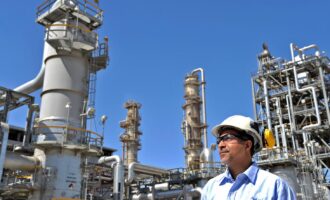
Preem cancels Lysekil Refinery expansion, focus shifts to renewables
Preem, Sweden’s largest oil refiner, said it will cancel its plan to expand the USD1.65-billion project for the Lysekil Refinery “in the light of new economic circumstances.”
The 2016 Environmental Permit Application at Lysekil Refinery will be withdrawn in favor of a re-prioritisation centered around renewable fuel production, Preem announced.
The ROCC (Residue Oil Conversion Complex) project, a significant part of the 2016 permit application, was an innovative but technically difficult and costly project designed to reduce the production of sulfur-rich heavy fuel oil in favor of low-sulfur products such as diesel fuel and gasoline. As a result of the COVID-19 crisis’ effects on the energy sector globally, the economic logic of investment in this project no longer stands, the company said.
“The closure of ROCC is a necessary commercial decision based on an assessment of profitability and technical feasibility. This decision also makes the 2016 permit application redundant,” said Magnus Heimburg, the newly appointed CEO of Preem, who took a leading role in the strategic re-prioritisation of the company’s efforts.
The re-prioritisation now allows funds to be concentrated on projects which enable increased renewable production. These are also the projects that will most effectively secure jobs and regional development, the company said.
Preem is Sweden’s largest producer of renewable transport fuels. Preem’s highest priority now is to speed up the program aimed at producing renewable fuels at the Lysekil refinery. During the fall, a new application will be submitted to enable large-scale production of renewable fuels. Preem is also giving priority to ramping up the production of renewable fuels at the refinery in Gothenburg. Sweden’s largest production site for renewable diesel and renewable aviation fuel is currently planned at the refinery. The environmental permit process for this unit has already begun and is being processed in the Land and Environmental Court.
“The re-prioritization is an important step in accelerating the transition at both of our refineries from fossil fuel production to renewables. It is a positive step in our commitment to the Green Agenda,” said Heimburg.
The economic recession and declining fuel demand have put pressure on the global refining industry, including Preem. At the same time, the government has decided on a more ambitious blending mandate in Sweden and has announced a willingness to support investments in domestic production of renewable fuels which have seen an improvement in the climate for investment.
“Focus on renewable fuels is the cornerstone of Preem’s overall and long-term business strategy. In a situation where tough decisions have to be made, it is crucial for Preem to allocate resources to those projects that will accelerate our renewable production fastest and most cost-effectively, I look forward to leading this major and important transition,” Heimburg said.









